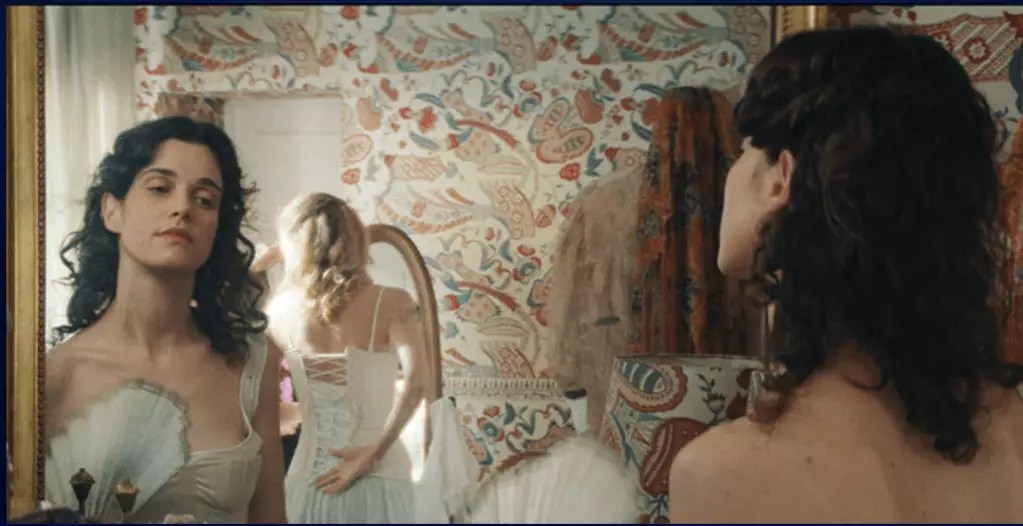In a world saturated with formulaic blockbusters, it’s refreshing to see indie films flourish, particularly with strong narratives that challenge societal norms and expectations. The recent surge of interest in Jane Austen Wrecked My Life serves as an illustrative case. This film expertly weaves the legacy of Austen, a novelist whose influence spanned centuries, into a contemporary narrative that resonates with today’s audience. Opening with a remarkable $291,000 across a mere 61 screens, this film showcases how effectively Austen’s star power continues to entice viewers. What stands out here is that this isn’t merely a cash grab; the film received an impressive 87% certification on Rotten Tomatoes, proving that critics still value genuine storytelling imbued with authenticity.
Yet, it’s not just the charm of Austen that keeps moviegoers enthralled. The film’s portrayal of a young woman struggling to find her voice in a chaotic world parallels a larger societal movement that emphasizes the importance of women carving their own paths, akin to the struggles faced by Austen herself in her time. The introduction of a modern character grappling with themes of love and ambition against an Austen-esque backdrop is both entertaining and liberating. It’s a reminder of how classic literature can transcend time, finding relevance through modern reinterpretations.
The Power of Faith in Film
Moving on to The Last Rodeo, indie filmmaking takes a victorious leap forward, as Angel Studios crafts a narrative steeped in familial bonds and personal sacrifice. Grossing an estimated $5.26 million over three days, the film successfully captures the essence of what it means to prioritize family. Starring Neal McDonough as a retired rodeo superstar, it narrates an emotionally charged story of redemption and paternal devotion, resonating with audiences yearning for wholesome content. The film’s 73% rating on Rotten Tomatoes hints at a decent critical reception, but an astounding 94% audience score signifies a profound connection with everyday moviegoers.
The celebration of faith-based narratives in cinema is long overdue, particularly as they articulate moral complexities that contemporary films often sidestep. People are increasingly gravitating towards meaningful storytelling, highlighting the need for films that foster a sense of community and shared experience—a significant factor that differentiates indie films from their studio rivals.
Friendship: The Comedy That Hits Home
Jumping onto the comedy scene, Friendship—starring Tim Robinson and Paul Rudd—has taken audiences by storm, raking in approximately $4.6 million in its latest weekend run. This story of two suburban dads navigating the complexities of their bond proves that humor, when exacerbated by relatable circumstances, can be both healing and entertaining. What makes Friendship compelling is the way it flips the script on traditional fatherhood narratives. Instead of showcasing a heroic figure, it embraces ordinary flaws and brings them to the forefront, reminding us that vulnerability is an essential ingredient in developing profound connections.
The powerful word-of-mouth that has driven this film’s momentum speaks volumes about its relatability. In an age where the pressure to curate ‘perfect’ lives can be overwhelming, audiences delight in a portrayal that mirrors real-life challenges. It’s a refreshing reprieve from the unrealistic standards portrayed in mainstream cinema.
The State of Indie Films: A Growing Trend
The growth of indie films in the box office, especially during the start-of-summer release season, is emblematic of a broader cultural shift. As audiences become increasingly frustrated with the mundanity of blockbuster franchises, they are seeking stories that challenge the norm and evoke genuine emotions. The impressive ticket sales for these independent projects reflect a growing appetite for diverse and authentic voices in storytelling, one that champions both individual and collective experiences.
The subtle shift in audience preferences also begs a larger question about the future of cinema. Will indie films remain relegated to niche audiences, or is this a sign of their impending mainstream acceptance? Perhaps this summer serves as a pivotal marker in indie filmmaking, where the stories that resonate most with society are given the space to thrive, pushing the boundaries of conventional storytelling to new heights. The narrative landscape is ever-changing, and one can only hope that it continues to favor genuine creative expression over formulaic entertainment.


Leave a Reply